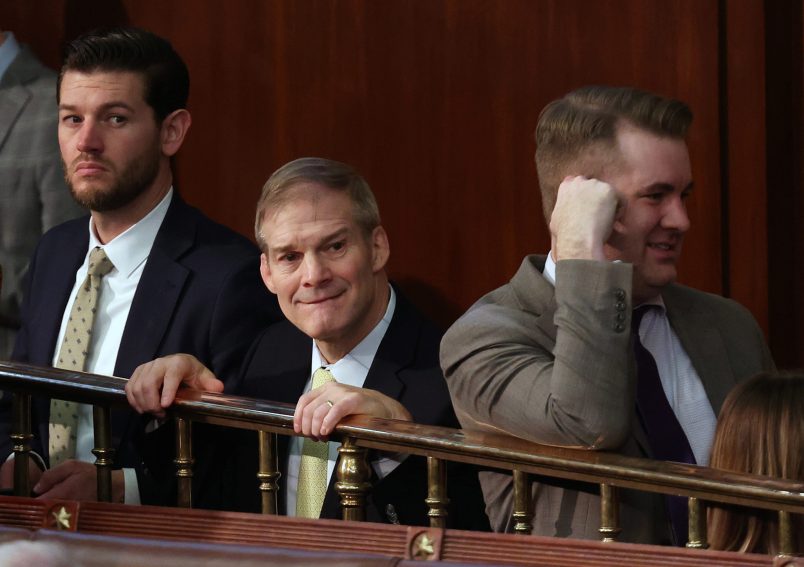House Judiciary Committee Chair Rep. Jim Jordan (R-OH) has doubled down on his intent to investigate Manhattan DA Alvin Bragg as he seeks to block the prosecutor from potentially bringing a case against Donald Trump.
It’s led to a bizarre back-and-forth between Bragg and Jordan over the past week, as the grand jury hearing the Stormy Daniels hush-money case listens to what are reportedly its final witnesses before prosecutors make their final presentation to the grand jury.
Jordan, along with House Oversight Committee Chair Rep. James Comer (R-TN) and House Administration Committee Chair Rep. Bryan Steil (R-WI), demanded last week that Bragg appear before the House to answer questions about his probe into Trump.
In that letter, the trio called the investigation an “unprecedented abuse of prosecutorial authority.”
Jordan has been leading the charge in the epistolary attempt to interdict Bragg in the final stages of the latest Trump investigation, following years of probes that managed to dig up a lot of dirt without ever netting charges against The Donald.
Bragg is the most recent — and, potentially, the closest — prosecutor to consider charging Trump. In a Saturday letter signed by Jordan and the two other House chairs, Jordan described the investigation as Bragg’s “reported effort to indict a former President of the United States and current declared candidate for that office.”
“If state or local prosecutors are able to engage in politically motivated prosecutions of Presidents of the United States (former or current) for personal acts, this could have a profound impact on how Presidents choose to exercise their powers while in office,” Jordan added. “For example, a President could choose to avoid taking action he believes to be in the national interest because it would negatively impact New York City for fear that he would be subject to a retaliatory prosecution in New York City.”
Bragg had sent Jordan a letter last week saying that, as a federal committee chair, he had no authority to interfere in a state investigation. Jordan has replied that he wants the House to consider legislation to “insulate current and former presidents from such improper state and local prosecutions”– a continuation of the monarchist-tinged arguments that attorneys for Trump flung at investigators while he was in office. (Any legislation championed by the House in an attempt to protect, specifically, Trump would face long odds in the Democratic-controlled Senate.)
In a reply to House Republicans’ letters, the general counsel for Bragg’s office noted that the inquiry only came after Trump himself set up the expectation that his indictment was imminent, writing that it “only came after Donald Trump created a false expectation that he would be arrested the next day and his lawyers reportedly urged you to intervene.”



